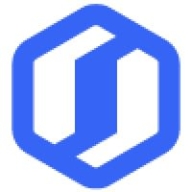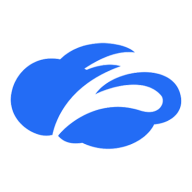


Skyhigh Security and Zscaler Zero Trust Exchange Platform are competitors in the cybersecurity market. Zscaler may have the upper hand with its seamless VPN and cloud integration capabilities, which is a significant advantage over Skyhigh's focus on threat analysis and integration abilities.
Features: Skyhigh Security provides threat analysis, shadow IT discovery, and robust DLP integration, ensuring comprehensive oversight on cloud usage. Its integration capabilities help businesses maintain compliance and mitigate unauthorized data exposure. Zscaler Zero Trust Exchange stands out with VPN functionality, seamless integration with major cloud providers, and user-friendly connectivity, which minimizes the need for frequent authentication.
Room for Improvement: Skyhigh Security needs to improve report generation speed, enhance console performance, and improve cross-cloud support. Users point to insufficient documentation as another area needing attention. Zscaler could benefit from addressing high pricing, enhancing on-premises flexibility, and offering more granular control in configurations and reports. Users have also expressed a need for better scalability and reduced latency.
Ease of Deployment and Customer Service: Skyhigh Security offers multiple deployment options, including hybrid and on-premises, but customer support experiences vary, with some users struggling to access effective assistance. Zscaler provides effective technical support and robust cloud deployment options, although latency and backend transparency have been noted as areas for improvement.
Pricing and ROI: Skyhigh Security's pricing model is subscription-based and viewed variably as affordable or expensive, depending on the feature set. Its ROI is generally perceived positively but often lacks precise quantification. Zscaler is frequently considered costly, particularly when additional features are involved. However, it is praised for its cost-efficiency over a larger user base, with ROI being more operationally beneficial rather than directly financial.
WordPress security can be tricky, and that's where Cloudflare can be absolutely helpful for small businesses.
For the small project I was working on, using the basic tier provided a huge improvement at zero cost.
In terms of return on investment with Cloudflare, it costs my time to set them up, but basically once they're set up, it's done.
We don't have to purchase many components such as load balancers and proxy servers that were necessary in traditional setups.
This would help us address issues promptly, especially during unforeseen events like DDoS attacks.
Cloudflare does not offer hands-on technical support to fix customer problems but rather a self-service model.
The key factor is the language in which the support is offered, which, in this case, is in Thai.
Sometimes, support takes time since the solution has some bugs that need fixing.
It is a SaaS tool, but the fact that they have workloads deployed across the world proves that it is a highly scalable tool.
The tool offers very good performance, even during high-traffic periods.
I rate the solution’s scalability an eight out of ten.
For DDoS protection, I would not recommend Cloudflare.
I rate the solution’s stability an eight out of ten.
The service is very stable with no impacts during high-traffic periods.
There's a need for improvement in areas like AI-based DDoS attacks and Layer 7 WAF features.
Despite these challenges, overall, Cloudflare remains the preferred solution compared to Azure, AWS CloudFront, and Google Cloud Armor.
The timing aspect can lead to it being considered overpriced. This is a particular concern we have with Cloudflare, as they may struggle with accurately detecting the client.
The solution has room for improvement in its DDoS protection.
They might be able to identify if something is missing with Zscaler.
That's where Cloudflare shines for smaller businesses – it's ten times cheaper than Akamai.
I find it to be cheap.
I think they should consider reevaluating the pricing for support, as it can be quite high.
The most valuable features of the solution are performance and security.
Techniques like minification and image compression reduce the size of assets, leading to better performance and faster user load times.
The solution has been able to compare it to the market, and I think the product has taken great strides in automating quite a bit of things, and they use a lot of AI.
The cloud security features are the most valuable.
The solution is cloud-based with the latest inspection engines, which I find to be amazing.



| Company Size | Count |
|---|---|
| Small Business | 46 |
| Midsize Enterprise | 8 |
| Large Enterprise | 25 |
| Company Size | Count |
|---|---|
| Small Business | 29 |
| Midsize Enterprise | 4 |
| Large Enterprise | 37 |
| Company Size | Count |
|---|---|
| Small Business | 16 |
| Midsize Enterprise | 11 |
| Large Enterprise | 41 |
Cloudflare is a highly-regarded Content Delivery Network (CDN) and a Distributed Denial-of-Service (DDoS) protection solution. The robust global connectivity cloud platform that is Cloudflare ensures users are able to connect to the Internet quickly, securely, and reliably. Cloudflare is one of the world's largest networks in the marketplace today. Using Cloudflare, businesses, educational entities, NGOs, vloggers, bloggers, and anyone else with an internet presence can experience more secure, faster websites and applications.
Currently, there are millions of Internet locations on Cloudflare, and the Cloudflare network
continues to grow every day by the thousands. The solution is able to fulfill the requests for
millions of websites seamlessly and serves on average 45 million HTTP requests per second.
Cloudflare has safe, secure data centers in close to 300 cities worldwide to ensure every
client request is filled as quickly as possible. It is Cloudflare’s edge network that makes this
possible by keeping content and other services as close to each client as possible, so the
information requests are always only seconds away.
Many organizations that work in democracy, civil society, human rights, or the arts are able to
access Cloudflare's highest levels of protection for free via Project Galileo. Additionally, official
election websites can be secured from hacking and fraud through Cloudflare’s Project
Athenian, also at no additional cost.
Cloudflare can also help organizations of all sizes develop a robust zero-trust strategy to
ensure the highest levels of productivity and profitability. Employees, stakeholders, and end users have a greater level of satisfaction and overall improved user experience, which can, in
turn, result in higher revenues and overall ROI. Zero-trust and BYOD (bring your own device)
access ensure end users and employees always have the best resources and technology
available to them at all times.
Cloudflare benefits
Cloudflare has many benefits. Some of its most valuable benefits include:
- Faster load times
- Robust DNS security
- Intuitive cloud Web Application Firewall (WAF)
- Free universal SSL
- Image enhancement
- Automatic browser caching
- Next-generation cloud load balancer
- Accelerated Mobile Pages (AMP)
- Rate limiting
- Minification
- Zero-trust capabilities
- Cost-effective
- Reduced carbon footprint
Reviews from real users
“Many websites require an SSL certificate because they sell stuff and want SSL. Cloudflare
comes with an SSL certificate built in. It's automatic. You sign yourself up for Cloudflare, and
an SSL certificate automatically protects your website. If you have a connection between your
website and your host, the server, Cloudflare, and the host, you don't necessarily need a
certificate.” Spencer M., Owner at Tech Exchange
“What I like best about Cloudflare is that my company can use it to trace and manage
applications and monitor traffic. The solution tells you if there's a spike in traffic. Cloudflare
also sends you a link to check your equipment and deployment and track it through peering,
so it's a valuable tool.” Daniel P., Network Engineer at Ufinet
“The most valuable feature of Cloudflare is the GUI. You are able to control the solution very
well through the interface. There is a lot of functionality that is embedded in the service.” PeerSpot user, Competence Center Manager at a tech services company
Skyhigh Security protects organizations with cloud-based Zero Trust security solutions that are both data-aware and simple to use. Skyhigh’s Security Service Edge portfolio goes beyond data access and focuses on data use, allowing organizations to collaborate from any device and from anywhere without sacrificing security, while providing the visibility and control required to monitor and mitigate security risks.
The Skyhigh Security Service Edge portfolio includes Skyhigh Secure Web Gateway, Skyhigh Cloud Access Security Broker, Skyhigh Private Access, and Skyhigh Cloud Native Application Protection Platform. All solutions form a fully converged, consolidated platform, and are managed from the same single console.
Skyhigh Security Benefits
Skyhigh Security Features
Zscaler Zero Trust Exchange enhances security with seamless cloud-based connectivity and VPN-less operation, offering integration with multiple identity providers and advanced security features, suitable for remote work environments.
Zscaler Zero Trust Exchange provides secure, adaptive connectivity without traditional VPNs, allowing organizations to replace legacy systems and bolster remote work security. The platform offers cloud-based protection, single sign-on, dynamic URL categorization, and scalable solutions. While advanced security features like DLP and threat protection enhance data protection, users may face issues with speed, connectivity, and some customization options. Integration challenges, latency due to multi-tenant hosting, reporting delays, and licensing costs require consideration. It supports secure internet access and private application security, ensuring traffic control and data compliance.
What are the key features of Zscaler Zero Trust Exchange?Zscaler Zero Trust Exchange is deployed across industries to secure remote access and enforce zero trust principles. Organizations in finance, healthcare, and technology sectors utilize it for secure internet access and visibility into cloud applications, enhancing performance and compliance in dynamic environments.
We monitor all ZTNA as a Service reviews to prevent fraudulent reviews and keep review quality high. We do not post reviews by company employees or direct competitors. We validate each review for authenticity via cross-reference with LinkedIn, and personal follow-up with the reviewer when necessary.